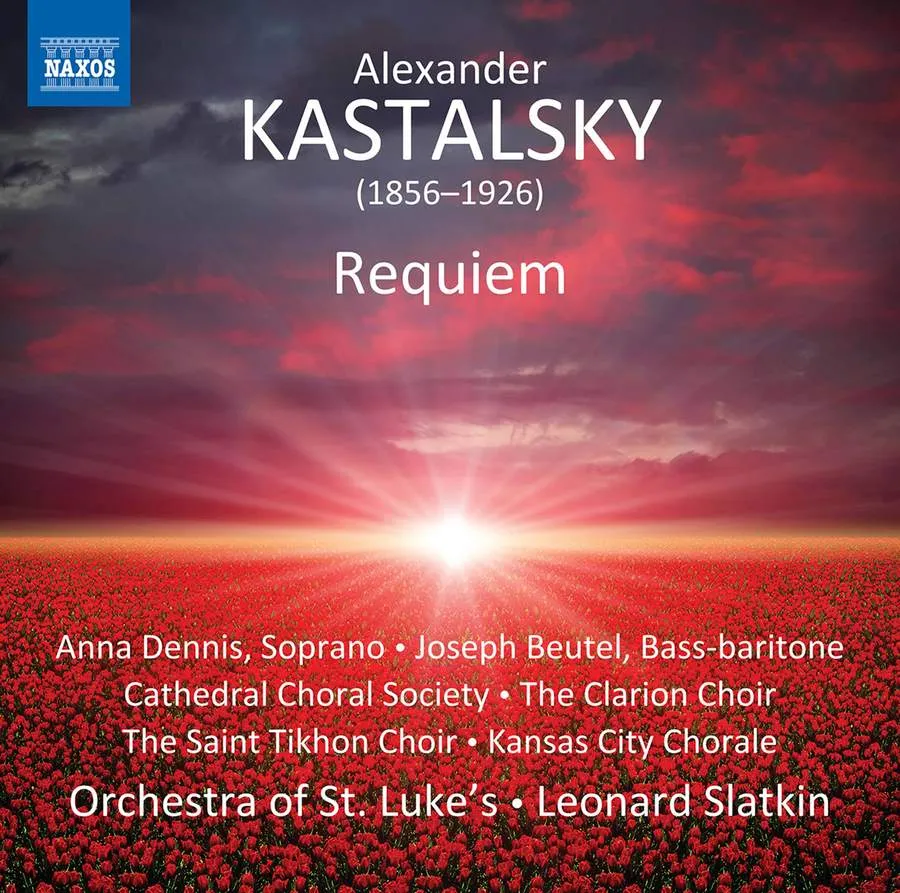
Kastalsky Requiem for Fallen Brothers Anna Dennis (soprano), Joseph Beutel (bass-baritone); Cathedral Choral Society; The Clarion Choir/Steven Fox; The Saint Tikhon Choir/Benedict Sheehan; Kansas City Chorale/Charles Briffy; Orchestra of St Luke’s/Leonard Slatkin Naxos 8.574245 63:57 mins
One of Russia’s foremost composers of Orthodox church music, Alexander Kastalsky (1856-1926) is remembered for assisting Rachmaninov with his All-Night Vigil. During World War I, Kastalsky composed his Requiem for Fallen Brothers in honour of Russia and her allies: using a full orchestra, and mingling texts and melodies from the Orthodox, Anglican and Catholic Churches, Kastalsky also included textless tributes to the Indian and Japanese forces. Most of the music is clearly steeped in the Orthodox tradition, infused with memories of Mozart’s Requiem, but includes disquieting elements such as the Musorgsky-like funeral bell chord which makes ominous reappearances, like the bell in Britten’s War Requiem. After its 1917 premiere, Kastalsky added a further three movements including one honouring Russia’s new ally, America. The October Revolution precluded their performance, and the work was not heard again until 1977 when Yevgeny Svetlanov conducted the earlier 1917 version, its liturgical texts inevitably replaced with Soviet-style sentiments: this was recorded, but is currently only available as part of an expensive 11-disc Melodiya set.
Leonard Slatkin and his first-rate team of musicians now present the first complete recording. The ‘new’ post-1917 movements include a ‘Beati mortui’ sparkling with sleigh bells and piano figuration; a sombre bass solo ‘Kakaya sladost’, which for a moment enters a hellish region with shadowed smears and slitherings from the orchestra; and the American hymn ‘Rock of Ages’ bizarrely yet touchingly combined with Chopin’s Funeral March. Slatkin, who admits a deep belief in this work, draws a touching performance.
Daniel Jaffé